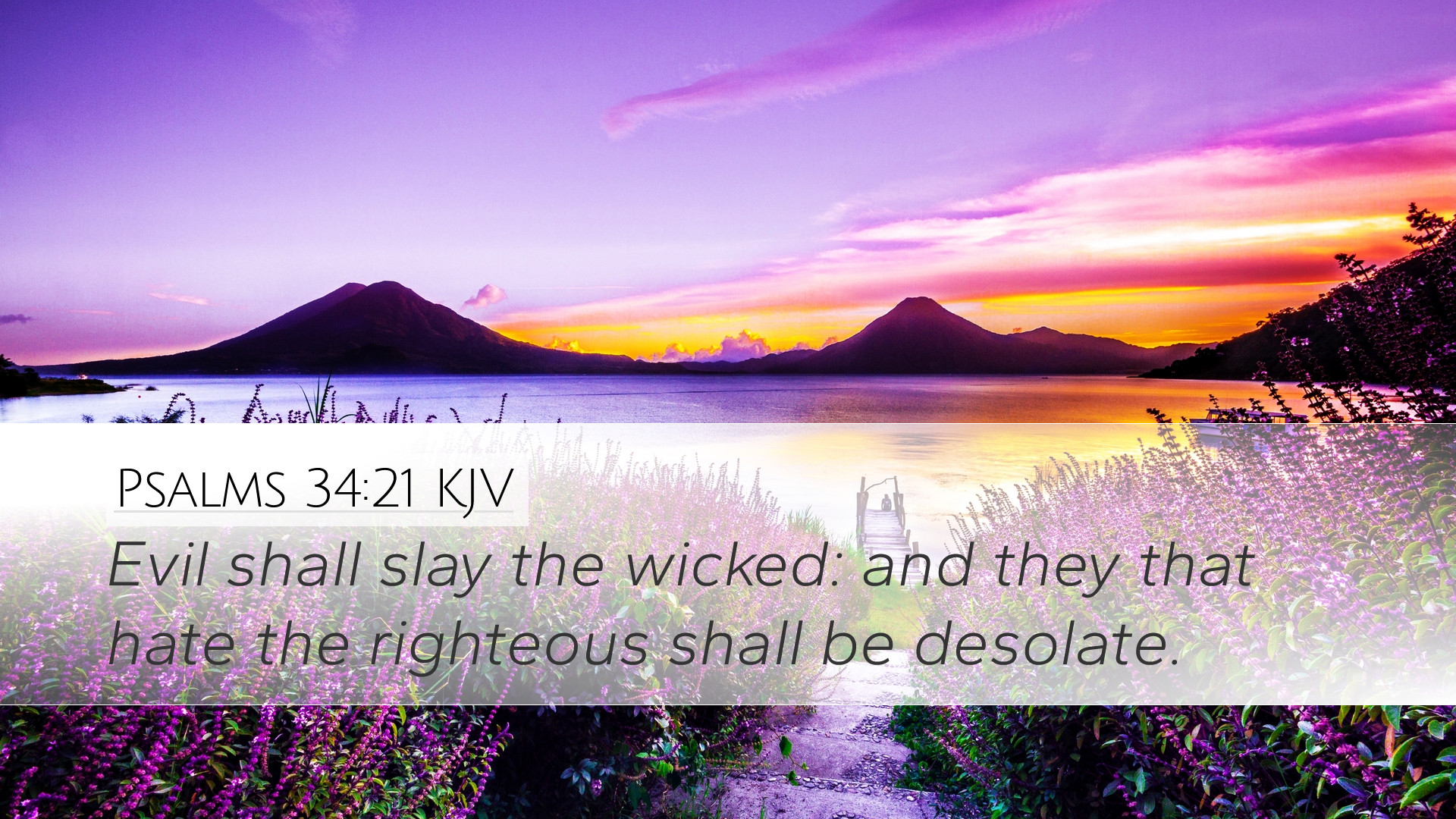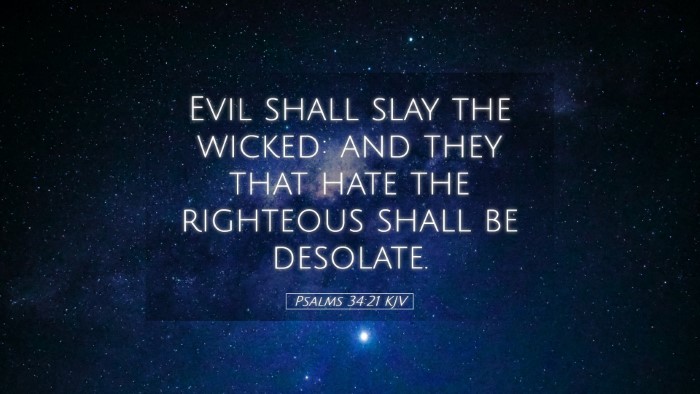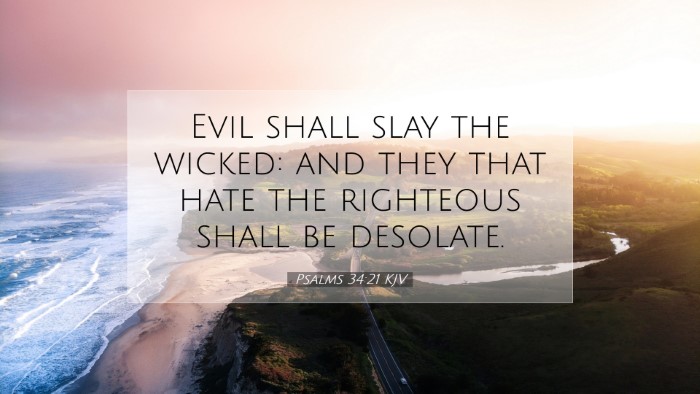Commentary on Psalms 34:21
Bible Verse: Psalms 34:21 - "Evil shall slay the wicked: and they that hate the righteous shall be desolate."
Introduction
This verse encapsulates a profound truth regarding divine justice and the moral order of the universe. The sentiment expressed here is echoed throughout scripture, reaffirming that the trajectory of the wicked ultimately leads to their own destruction. In examining this verse, we draw insights from distinguished public domain commentators such as Matthew Henry, Albert Barnes, and Adam Clarke.
Exegesis of Psalms 34:21
1. The Nature of Evil
Matthew Henry emphasizes that "evil shall slay the wicked" implies a self-destructive quality inherent in sin. Those who engage in wickedness not only bring harm to others but inevitably sow seeds of their own ruin. In this context, evil is portrayed not merely as an external force but as something that consumes and annihilates its beholders.
2. The Fate of the Wicked
Albert Barnes notes the assured demise that awaits the wicked: "they that hate the righteous shall be desolate." This underscores the divine law that retributive justice operates in accordance with human actions. Passionate hatred towards the righteous invites calamity; the very act of opposing goodness leads to desolation.
3. The Assurance of the Righteous
Adam Clarke reflects that the psalm emphasizes a protective assurance for the righteous. In facing opposition, they can rest in the certainty that God's justice prevails. The verse serves as a warning to the wicked while simultaneously encouraging the righteous not to fear, for their standing with God shields them from the ultimate fate of their adversaries.
Theological Implications
The verse presents a clear dichotomy between the fate of the wicked and the righteous. It encourages theological reflection on the nature of God as a just judge. The righteous may endure suffering temporarily, but they possess hope amidst adversities. On the other hand, the wicked will find their actions leading to inevitable collapse.
1. Divine Justice
This scripture calls attention to God's justice. Just as light inherently dispels darkness, righteousness inherently brings forth blessing while wickedness leads to chains of destruction. God does not allow sin to go unpunished, reinforcing the core belief in divine order.
2. The Role of Human Agency
Human choice plays a significant role; the decision to embrace wickedness or righteousness directly influences one's path. Therefore, this passage calls individuals to consider the weight of their choices, encouraging a life that aligns with God's righteousness.
Practical Applications
From this profound biblical truth arise several practical applications for today’s believers:
- Rejecting Evil: Believers are challenged to actively turn away from evil practices and to avoid the company of evil-doers, recognizing that their choices shape their spiritual journey.
- Encouragement in Trial: When facing injustice or hatred, the faithful are encouraged to find solace in knowing that God recognizes their plight and will ultimately bring about justice.
- Praying for the Wicked: As illustrated in the broad themes of scripture, praying for the wicked and sharing God’s love can be a powerful antidote to hatred, reflecting hope for their redemption.
- Living Righteously: This verse serves as a call towards a commitment to righteousness, fostering a life that reflects God’s character, which not only bears witness to the Gospel but also resonates with the grand theme of divine justice.
Conclusion
Psalms 34:21 encapsulates essential truths of the faith — the inevitable destruction that follows wickedness and the fortification of the righteous under God’s care. Through careful consideration of this passage, believers are reminded of their role in the overarching story of God's redemptive plan. As they navigate their faith journeys, the words of the psalm serve to reinforce confidence in God's justice, encouraging both a determination to live righteously and a hope in divine protection.


